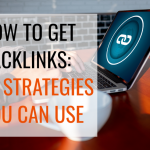Most successful companies start out small. But with today’s fierce competition, entrepreneurs need to come up with a solid plan to scale their business.
Growing and scaling are often used interchangeably but technically they have slightly different meanings. Growing means adding new resources like capital or more employees to increase your current revenue. Scaling, on the other hand, means increasing revenue or output without a substantial increase in resources. For small businesses without excess capital to spare, scaling is an excellent way to boost sales and gain more customers.
Making the decision to scale your online business can seem scary and success doesn’t happen overnight. As an ecommerce business owner, you don’t want to waste your time and spend money on strategies that may not work. So, when is the right time to scale, and what strategies are out there?
Let’s find out.
Why Should You Scale Your Business?
Growth is essential to the long-term survival of a business.
Scaling your company helps you improve your business processes, making it easier for you to focus on revenue-generating activities. Scaling your business also helps you attract the best people to work with, whether that’s hiring great talent or potential investors. Finally, and most importantly, when you’re able to scale, you can gain market share, allowing you to beat out the competition.
When Should an Online Business Start Scaling?
So your online marketing strategies are finally paying off, your profit looks good, and your processes work seamlessly. Does this mean you’re ready to get to the next level? Remember that the tactics that got you here won’t necessarily help you go bigger.
A business should be able to scale effectively if you have:
- A product that meets your target market’s needs and solves their problem
- A strong brand identity
- An established market that sees value in your product
- The right team with diverse talents and capabilities
- A business model with processes that are scaleable or repeatable
- Attractive profit margins
- Openness to using the latest technology
10 Strategies to Scale an Ecommerce Business
Here are online business scaling strategies to help you boost productivity and your profits. Here’s a look at some strategies that you can use to scale.
Track Relevant KPIs
You can’t manage what you don’t measure. Tracking key performance indicators (KPIs) are important to quantify the progress you’re making in terms of growth. When scaling a business online, important KPIs to keep track of are your ecommerce conversion rate, cart abandonment rate, average order value, and shipping and fulfillment rates. Customer service and manufacturing KPIs should also be tracked to maintain efficiency in these areas.
Invest in Software and Technology
Technology is an asset that businesses can’t afford to ignore. The good news is that using many of today’s tools isn’t rocket science. They’re easy to use and built with entrepreneurs in mind. By eliminating tedious processes that require tons of time and energy, your team can focus on activities that drive more sales.
Email marketing, inventory and logistics, and customer service are just some of the areas where using software can fine-tune your process by leaps and bounds. Many software services are free or offer tiered paid plans to fit everyone’s budget and goals.
However, be careful not to jeopardize customer relationships with the over-use of technology. If you use chatbots and auto-replies, make sure that your customers know that a human is still there to help if their problems aren’t resolved with software.
(Source: Sprout Social)
Ramp Up Your Email Marketing
Email marketing can be tricky. One survey found that 76% of customers have bought from an email marketing message. But sending too many irrelevant sales emails a day to one customer is the fastest way to get blocked and marked as spam. Send only a few (or just one) per week, and keep your messaging short, sweet, and most of all, relevant.
Track email marketing KPIs such as open rates, unsubscribes, and conversion rates. Note emails that perform well and study the elements such as the subject title and content to see what works. Create segmented lists and send personalized offers to customers based on their purchase habits. Some of the best email marketing automation tools are Drip, ConvertKit, and Mailchimp.
Build Sales Funnels
Effective selling means effective targeting. Sales funnels segment potential customers and seamlessly lead them from the top (awareness) to the bottom of the funnel (sale). Creating sales funnels helps you improve your targeting and get leads and more sales passively.
Begin by creating a lead magnet in the form of free or bonus content. Be sure to promote it and use SEO strategies to make it rank. Set up an automated email sequence tailored for people who signed up for your lead magnet. If you don’t want to build the funnels yourself, try out a tool like ClickFunnels or ActiveCampaign.
(Source: ConvertCart)
Get our Scaling Your Online Business_ 10 Tips and Strategies - Worksheet delivered right to your inbox.
Leverage Your Social Media Accounts
Social media marketing is one of the most effective tools to scale an online store. As of January, there are 3.96 billion social media users and on average, a person bounces between seven different social media networks each month.
A common mistake online businesses make is thinking that their social media following will increase organically as their business grows. In fact, this is one of the best times to stay engaged with your followers, so strike while it’s hot! Gymshark and Barkbox are examples of ecommerce brands that actively scaled their social media presence as they scaled their business.
Here are more ways to scale through social media:
- Use social shopping features. Social media platforms like Facebook and Instagram allow you to add your catalog and use shoppable tags to make it easier for potential customers to shop.
- Create a social media calendar and plan your posts ahead. Batching your work saves you time and ensures you always have content ready.
- Be present on multiple social networks and be sure to stay active on the ones where your customers hang out.
- Create a buzz by hosting free online events, giveaways, and contests.
- Invest in social media ads to reach your target customers quickly and efficiently.
(Source: Gymshark Instagram)
Use Social Proof
Trust Pilot says that 89% of customers worldwide read reviews before buying a product. Make review collection an important part of your strategy. Ask for reviews through product inserts and by sending customers a follow-up email a few days after the purchase. Make sure other people see these reviews as well by displaying them in a prominent place on your homepage and product pages.
Aside from reviews, recommendations from friends and influencers also have a positive influence on a consumer’s purchasing decision. Leverage social proof by encouraging customers to share social media content using your product and by working with influencers in your niche.
(Source: Smart Local Traffic)
Create a Seamless Buying Experience
Jonathan Long at Entrepreneur has some great advice: “Make it ridiculously easy for your customers to buy your product or service.” That might sound obvious, but there are still websites out there that don’t follow this rule. This means using:
- Hassle-free checkouts with single sign-on or a simple account creation process
- Direct/instant checkout options that take them from the product page to the payment page
- Landing pages with clear calls to action to generate leads and gain more customers
- Multiple payment options and payment plans
- Heatmap tools let you know where customers have trouble on your website. Look at this in relation to your cart abandonment rate to find out what you can do to make shopping easier.
(Source: LearnWoo)
Omnichannel Selling
Some small business owners start on an ecommerce platform; others start their own websites. No matter how you started, branching out to other sales channels is a great way to drive growth and expand your presence.
Before you sell on another ecommerce platform, do your research. Look at the associated costs and see how the platform fits with your business image, products, and target customers. The platform’s policies, seller support, and software support are also factors you have to consider when selecting a sales channel to sell on.
Fine Tune Your SEO
SEO isn’t a set it and forget it project. As you grow, regular SEO checks and tweaks still have to be done. This keeps your site user-friendly and easy to find, ultimately boosting conversions and customer satisfaction.
Here are some SEO tips for scaling:
- Do keyword research for your niche. Using the right keywords helps boost traffic, increases your site authority, and improves ranking in search engines. You should also use your keywords when coming up with content marketing ideas.
- Add a blog if you haven’t got one already. Create relevant and valuable content for your target audience.
- Build backlinks to boost your website’s authority.
Optimize Your Website
When you scale, your website should be able to handle the increased traffic and transactions from new customers. Buggy coding or heavy images can bog down your website. A server with more space might also be needed to accommodate demand. Shopify Plus is one example of an upgrade that’s made for ecommerce stores that need extra space, faster transactions, and software to handle increased website traffic.
Seventy-nine percent of online shoppers make purchases through a mobile device, so make sure your ecommerce store is mobile-friendly. A simple website design with easy navigation and prominent call-to-action buttons are also easy ways to optimize your site for conversions.
For more tips, check out this case study we did on website elements that drive conversions: Website Design Tips for Ecommerce Stores That Boost Your Conversions.
FAQs: How Do You Scale an Online Business?
Finally, let’s take a quick look at some frequently asked questions when it comes to scaling an online business.
How can I quickly scale my business in 2022?
Using technology and automating some of your business processes can help you save time and scale your business faster. Tasks that can be automated or outsourced easily include repetitive tasks, anything that’s administrative, and anything that you can systemize.
How do you properly scale a business?
To properly scale a business, make sure that you have the right product, an established target market, and scalable business processes in the first place. After that, you’re doing to need a plan to scale. You can use one or a handful of the abovementioned strategies to scale your ecommerce business.
How do you scale a business with no money?
At the end of the day, all businesses require some level of investment to scale. However, if you’re short on funds, you can invest your time. Ideas for scaling a business with no or little money include stepping up your email marketing efforts, improving your SEO, leveraging existing content, and expanding your ecommerce brand on other marketplaces, just to name a few.
The Next Steps: Scaling Your Online Store
Ready to scale? Here’s some pre-work that you should do before diving into the strategies we discussed:
Step One: Set Realistic Goals
It can be tempting to set high sales and growth goals to challenge yourself and your team. But having too many unrealistic goals is counterproductive and will only lead to burnout. Prioritize three main goals at first, with five KPIs for each.
Step Two: Audit Your Website SEO
Find out how your website is doing and see what you should fix. Check your loading speed time with PageSpeed Insights. Check for meta tag errors and broken links with Google Search Console, Sitechecker, or MOZ. Make sure that all your app and social media integrations are working.
While it’s a crucial element for the long-term survival of a business, scaling is a step that should be taken with care and should be done when your business is ready. Attempting to scale too quickly when your product just isn’t ready or if you don’t have solid systems in place could be difficult for you and your team to handle.
Remember that even big, established companies have their fair share of difficulties when scaling. There will be growing pains and some degree of trial and error involved, but with the right planning and tools, you’ll be able to grow efficiently.
Looking for strategies to scale your ecommerce business? Reach out now for your FREE 20-minute consultation call. Let’s find the best solutions to grow, and fast.
Get our Scaling Your Online Business_ 10 Tips and Strategies - Worksheet delivered right to your inbox.






